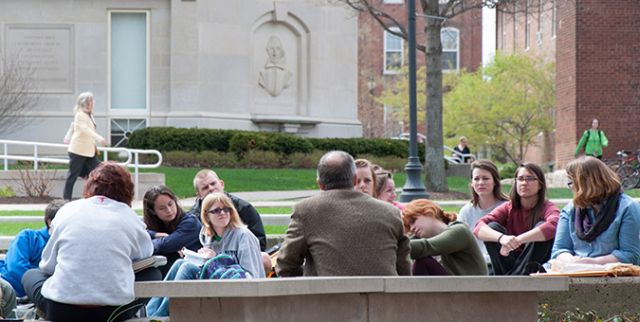
Philosophy Faculty Publications
Document Type
Article
Publication Date
Spring 2012
Publication Source
The Pluralist
Abstract
In the fall 2009 issue of The Pluralist, Tommy Curry and Dwayne Tunstall challenged the current, dominant view of Royce as an antiracist. In "Royce, Racism, and the Colonial Ideal," Curry presents Royce as a white supremacist, an admirer of British colonialism, and an advocate of black assimilation to Anglo-Saxon cultural practices (14-15). Tunstall, in "Josiah Royce's 'Enlightened' Antiblack Racism?," presents Royce as a non-essentialist regarding race, yet as a cultural antiblack racist, with a colonial attitude comparable to that held by John Stuart Mill (Tunstall 40). In the same issue of The Pluralist, Jacquelyn Kegley analyzes Royce's 1905 essay, "Race Questions and Prejudices," and maintains that Royce was a progressive antiracist, although she acknowledges that he shared some biases of the time (Kegley 8). Scott Pratt and Shannon Sullivan basically agree with Kegley in their introductions to the 2009 reissue of Royce's 1908 collection of essays, Race Questions, Provincialism, and Other American Problems. Setting Royce's essays in the context of his philosophy of loyalty, Pratt presents Royce as racially inclusive, with an egalitarian and democratic view on governance (Pratt 8-9). Sullivan finds problematic Royce's recommendation of "administration" as a response to race-friction, and takes it to illustrate Royce's ignorance of structural racism (Sullivan 26-27). Nonetheless, she insists that Royce articulated an antiracist position at a time when few philosophers, particularly white males, had the courage to do so (Sullivan 21).
In this paper I contribute to this debate, extending evidence in support of Curry's and Tunstall's presentations of Royce as holding white supremacist views. This paper addresses Curry's concern that Royce's thinking on race has not been situated in relation to white thinkers of his time (Curry 31). Here I locate Royce's reasoning in "Race Questions and Prejudices" among his white contemporaries' scientific and political debates regarding race. White supremacists of the time, while agreeing that whites were a superior race to blacks and that whites should govern, held a range of positions regarding the science and evolution of race, and offered many different proposals on how race relations should be socially and politically ordered. By locating his reasoning within the debates of his day, I show that in "Race Questions and Prejudices," Royce was arguing as a racial conservative, defined below, against a particularly vile form of populist racism, then prevalent. Because racial conservatism was so widely held by intellectuals of the day, Royce did not need to state his fundamental assumptions explicitly; his reasoning is opaque to today's readers. However, there are plenty of clues in the questions he chose to address or not address, the arguments he chose to use and not use, and in the recommendations he made and did not make. This analysis shows how implausible it is to claim that Royce was antiracist. Royce's racial logic discussed in this article is of a piece with the colonial logic Curry and Tunstall identify in their essays; my conclusions complement their own.
In section 1, I lay out Royce's racial topography, identifying the pattern Royce gives in "Some Characteristic Tendencies of American Civilization." In section 2, I show how Royce's reasoning about science and race did not challenge the dominant theories of evolutionary, scientific racism of the day, but was consistent with them. Section 3 demonstrates that Royce's advocacy of administration and his discussion of racial antipathies aligned with racial conservatives' emphasis on social stability based on white superiority and control. Section 4 draws out implications for contemporary research on Royce and other historical recovery projects. Throughout the paper I will use the language of "race" and "races" as Royce did, without entering into the discussion of how enormously problematic that language was and is.
Inclusive pages
104-132
ISBN/ISSN
1930-7365
Document Version
Postprint
Copyright
Copyright © 2012, Board of Trustees of the University of Illinois
Publisher
Johns Hopkins University Press
Volume
7
Issue
1
Peer Reviewed
yes
eCommons Citation
Fischer, Marilyn, "Locating Royce's Reasoning on Race" (2012). Philosophy Faculty Publications. 144.
https://ecommons.udayton.edu/phl_fac_pub/144



Comments
The document available for download is the author's accepted manuscript, provided in compliance with the publisher's policy on self-archiving. Differences may exist between this document and the published version, available using the link provided. Permission documentation is on file.